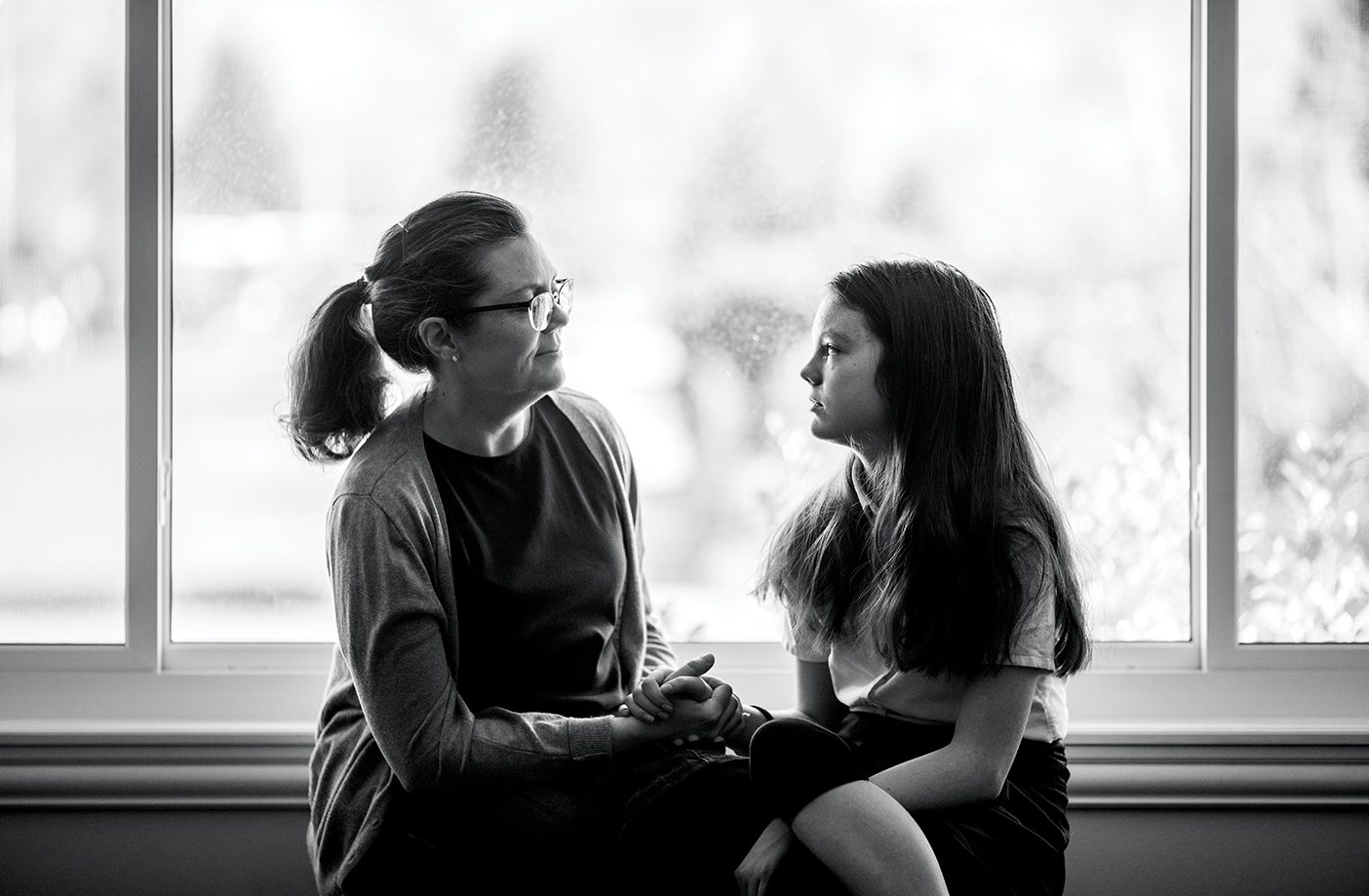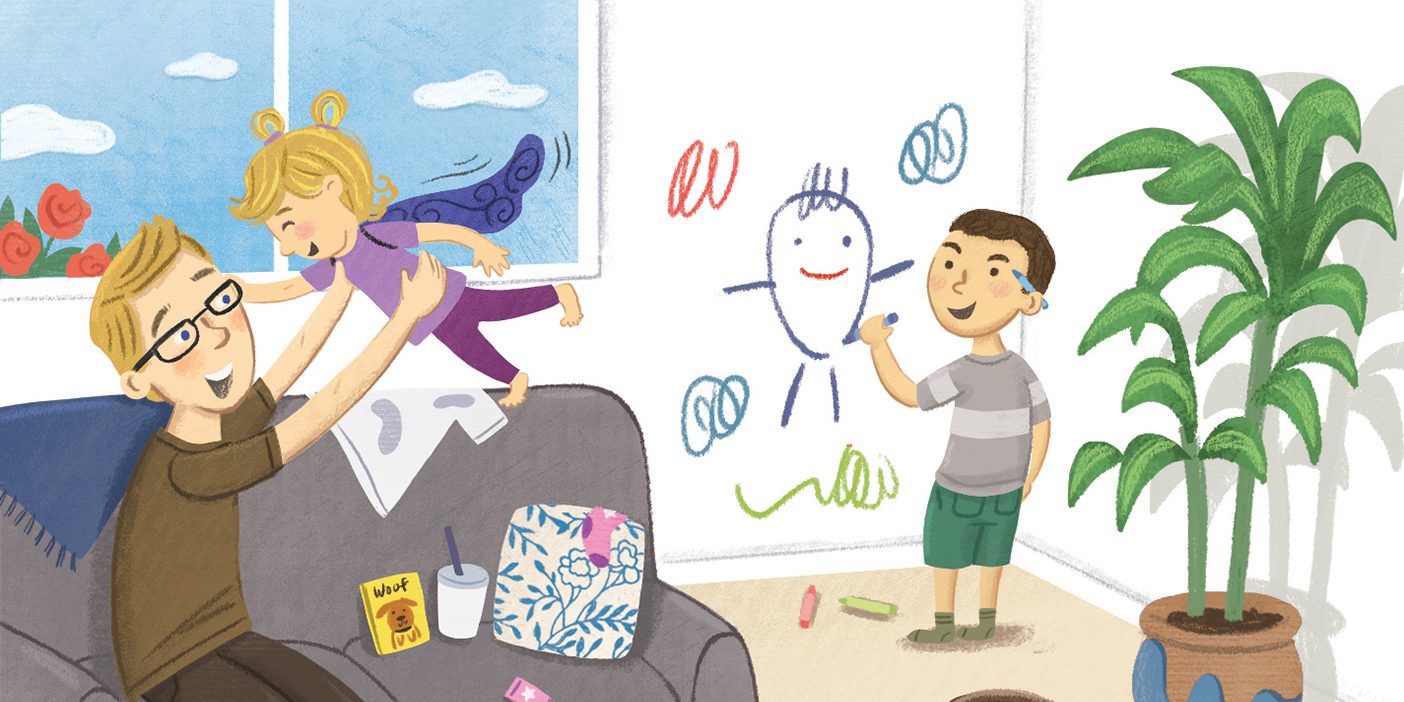Teaching your children about sexuality shouldn’t be a one-and-done conversation.

Kate and Jim Dobson (names changed) have regrets about how they handled sex education with their three daughters, now grown and living on their own. But they’re learning and getting better at teaching the tough topic with their three teenage sons, who are still at home.
“I wish I’d had more conversations with my daughters,” says Kate, who gained most of her own information about sex while growing up from friends. “I assumed it would be the same for my girls,” she says. “I totally dropped the ball with them.” The information the girls did receive left them confused and with feelings of shame about their bodies. “Two have let me try to fix that,” says Kate, “but the third won’t talk about it.”
The Dobsons began talking openly about sex sooner with their sons and work to keep the conversation going. But it took a wakeup call—finding porn on all of their devices. “Since then, we’ve sat down and talked many times,” Kate says. “We talk about pornography, sex, basic anatomy, masturbation. We probably visit the topic quarterly.”
According to Laura Padilla-Walker, a BYU professor of family life and an associate dean in the College of Family, Home, and Social Sciences, the Dobsons are doing better than most. Parents often think they’ve done their duty if they have initiated one sit-down discussion, she says. “A single talk about the birds and the bees is simply not enough.”
In a recent study published in the Journal of Adolescent Health, Padilla-Walker had hoped to find parents having a gradual increase in these discussions during adolescence, when children most need information and guidance. And yet, “all three reporters (mother, father, and child) noted relatively low and stable rates, despite the multitude of ways that teens change sexually over that time span,” she says.
To help kids navigate these changes, Padilla-Walker says it’s key for parents to engage in ongoing, open, and shame-free conversations—and to begin early.
It’s on You, Mom and Dad
Children learn about sexuality from friends, church leaders, schoolteachers, TV programs, online content, and more. Some sources are beyond parents’ control, but parents can greatly influence how children interpret and absorb information, says Padilla-Walker. “We live in a highly sexualized society, and children need to hear messages about their bodies and sexuality from their parents,” she says.
Padilla-Walker’s research has found that the more parents discuss sex with their kids, the less likely the children are to engage in risky sexual behaviors as they mature.
If children know that their parents will answer honestly and not overreact, they will choose parents as their go-to on the topic, says Padilla-Walker: “This is much preferable to children seeking answers from peers or media, which is where they currently go most often for questions about sexuality. Not because they want to—teens [in our study] note wanting to learn about sexuality from parents—but because they don’t feel their parents are accessible.”
“No matter how much parents think they’re talking, their child likely thinks they are talking less. What’s needed is ongoing dialogue.”
So what makes these conversations so difficult? Padilla-Walker thinks it often comes down to parents’ own history. Those raised “thinking sex is dirty and sinful,” she says, tend to feel embarrassed and uncomfortable. They might be hesitant to bring up the topic even once, let alone repeatedly.
To reluctant parents who muster the courage to talk, the conversation might feel monumental and lead them to think they’ve addressed the issue more than they actually have. Padilla-Walker’s study results show that no matter how much parents think they’re talking, their child likely thinks they are talking less. What’s needed is ongoing dialogue.
While parents most often want to warn their kids about the dangers of sexual promiscuity, Padilla-Walker says they should also refute fear-based, negative messages and help their children understand “the beauty of sexuality and the wonder of our bodies.” As parents integrate this idea with the importance of sexuality within a marriage relationship, “seeing our children as sexual beings will be exciting and celebratory rather than scary and secret.”
When conversing with their children, the Dobsons say they make sure the discussions stay positive. “We have been very clear in direct conversations that sex is good and very important,” says Kate.
When and How
Padilla-Walker reassures parents that it matters less what they say than how they say it. Young children will likely initiate the first conversations. From the time they can talk, they’ll have questions about their bodies. Padilla-Walker says it’s critical that parents learn to respond in a nonchalant, matter-of-fact way. “Call body parts the correct names,” she says. “Send the message that you’re willing to talk about their bodies. Help them to celebrate their wonderful bodies rather than induce shame.”
The more comfortable parents feel answering questions, the more comfortable their children will feel in asking them. “Practice is the key,” Padilla-Walker says. “The more you talk about it, the less awkward it will become.” Rehearsing responses in advance might help some parents avoid overreacting.
As children get older, parents should encourage them to keep asking questions. Some children will have endless questions, while others will need their parents’ prompting to broach topics like puberty, body image, dating, healthy sexuality, modesty, pornography, and sexual safety.
Padilla-Walker says parents should go beyond talking only about abstinence before marriage. Focusing on what not to do “has resulted in a sizable number of couples who waited until they were married to have sex but who still have considerable challenges because their view of sexuality is not healthy,” she says. A healthy view of sexuality also includes “a range of other beliefs and behaviors” that allow sex to be a fulfilling part of life after marriage.
As with all aspects of child-rearing, parents are more effective when they remember that every child is different. Some children are curious about the facts of life at a younger age than others. Some want short answers to questions at frequent intervals, while others might store up questions and unload them all at once, requiring less frequent but longer conversations. Some are more comfortable with Mom, and others with Dad.
The key is to talk about sexuality often, says Padilla-Walker, “so it isn’t a new and surprising topic to them.”
Competence and Confidence
As their confidence has increased, the Dobsons have sought more dialogue with their three grown daughters, with mostly positive results. For their oldest daughter, “it’s an ongoing process to get her to open up,” says Kate. The second daughter has opened up to the point that she called her mom during her honeymoon with questions about sex. Their third, a single daughter, also talks candidly about her sex life, which gives her mother openings to talk with her about sexual safety.
While the Dobsons had hoped all six of their children would live by the Church’s sexual standards, they realize that their children’s agency is sacred. They see their role as providing whatever guidance they can, even if it’s imperfect.
“We’re grateful for the chance to learn from our mistakes,” says Kate, “and we’re thankful for children who are forgiving.”
Sidebar: How to Talk to Your Kids about Sex
BYU family-life professor Laura Padilla-Walker offers pointers from her research and parenting experiences.
DO
• Talk with reluctant and interested siblings together. As talkative children ask questions, reticent children will learn as they listen.
• Chat while doing yard work, playing sports, or riding in the car to create a more relaxed atmosphere.
• Admit when you don’t know an answer and offer to learn together.
• Keep conversations short unless a child asks for more time.
DON’T
• Dominate. Ask questions and encourage your children to speak up.
• Think you need to be an expert before talking.
• Turn conversations into lectures or sermons.
• Shame children about their questions or their bodies.
• Fear that talking about sex will make your child more likely to engage in sexual behavior. (Research shows that it doesn’t.)
Sue Bergin is a writer and Marriott School adjunct instructor.












